Holiday Travel Safety Tips For USA Plane Passengers: 2016 Warnings For International Flights
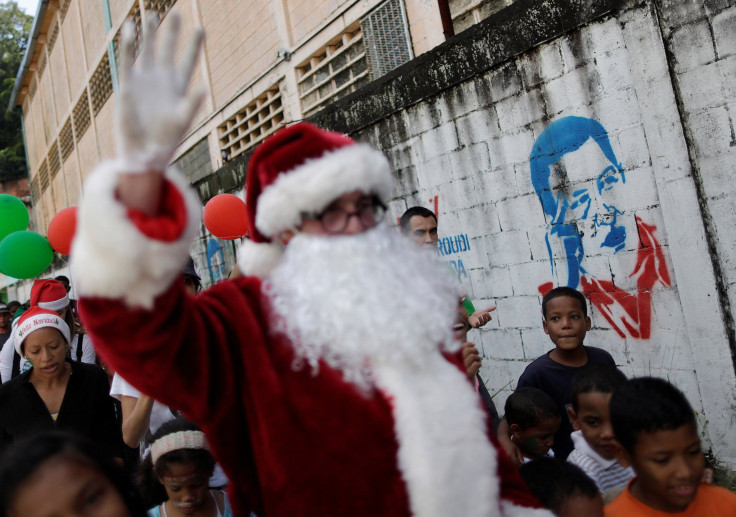
The State Department's list of alerts and warnings for international travelers got a new addition Tuesday: the Philippines. An Islamic militant insurgency in the southeastern Asian nation has claimed responsibility for numerous kidnappings and terrorist attacks against Filipinos and foreigners.
"The Department of State warns U.S. citizens to avoid all non-essential travel to the Sulu Archipelago and through the southern Sulu Sea, and to exercise extreme caution when traveling to the island of Mindanao, due to continued terrorist threats, insurgent activities and kidnappings," the document read.
As a record 103 million U.S. citizens (nearly one-third of the population) prepared to travel this holiday season, the State Department maintained travel warnings and alerts on 40 countries across the globe. While many U.S. citizens may be aware of the risks associated with traveling to known war zones such as Syria and Iraq, the State Department has already issued warnings -- long-term advisories against traveling to a specific country -- and alerts -- temporary circumstantial issues such as election violence or disease outbreak. -- for six other countries this month.
Here is a look at those countries:
Venezuela
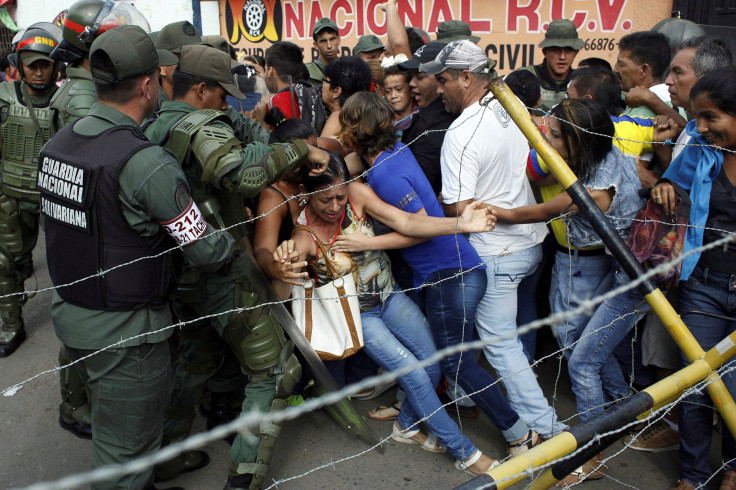
"The U.S. Department of State warns U.S. citizens against travel to Venezuela due to violent crime, social unrest, and pervasive food and medicine shortages," the department's statement reads.
The State Department issued the warning Dec. 15. Washington has been at odds with Caracas since the election of former Venezuelan President Hugo Chavez, whose socialist and anti-imperialist policies often led the late leader to condemn the U.S. Chavez was elected four times and enjoyed support from the country's underclass and indigenous population, but his administration witnessed massive surges in crime, inflation and corruption in Venezuelan society.
After Chavez's death in 2013, these issues were inherited by his successor, Nicholas Maduro. Caracas is the deadliest city in the world, according to World Atlas and despite the country's beautiful well-documented beauty, its violent reputation has led the U.S. State Department to urge its citizens not to travel there.
Ukraineunder
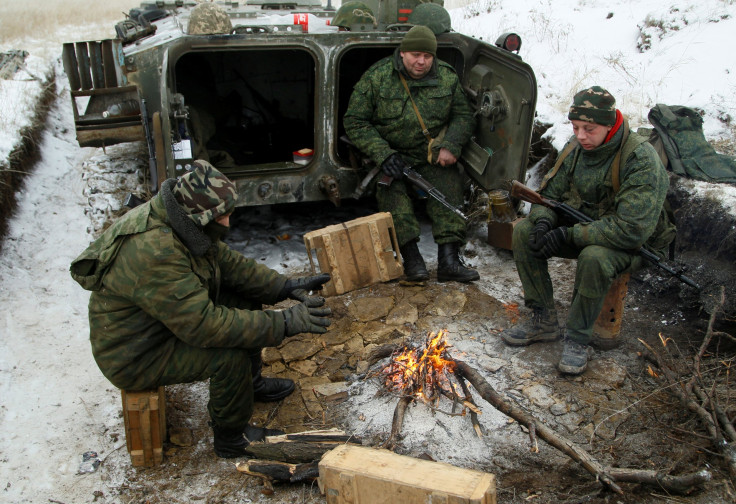
"The Department of State warns U.S. citizens to avoid all travel to Crimea and the eastern regions of Donetsk and Luhansk," the department's warning reads. "The situation in Ukraine is unpredictable and could change quickly. U.S. citizens throughout Ukraine should avoid large crowds and be prepared to remain indoors should protests or demonstrations escalate."
While a travel alert is currently in place for all of Europe in regards to Islamic terror attacks such as the one that struck a Berlin Christmas market Monday, Ukraine remains the only European nation to make it on the State Department's list. Specifically, the Dec. 14 warning advises citizens to stay away from Crimea, which was annexed by Russia in 2014, and the country's embattled eastern region where Russian-backed separatists are fighting the Ukrainian army over territory, resulting in over 9,000 deaths.
Algeria
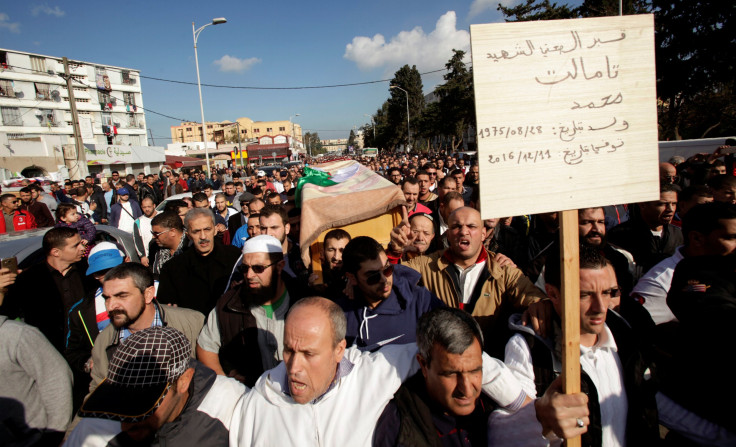
"The Department of State continues to warn U.S. citizens against travel to remote areas in southern and eastern Algeria, as well as isolated parts of the Kabylie region, due to a high threat of terrorist attacks and kidnapping," the department states in its online report.
The North African country has largely managed to block attempts to by the Islamic State group, also known as ISIS, from launching attacks in the nation as the militants have in neighboring Libya and Tunisia. Still, terrorist groups including those linked to ISIS and Al Qaeda are known to infiltrate Algeria through its porous border with Libya and operate covertly. The State Department advised citizens on Dec. 13 to keep in close contact with Algerian authorities when traveling outside major cities and to avoid driving through the country's isolated desert regions.
Mexico
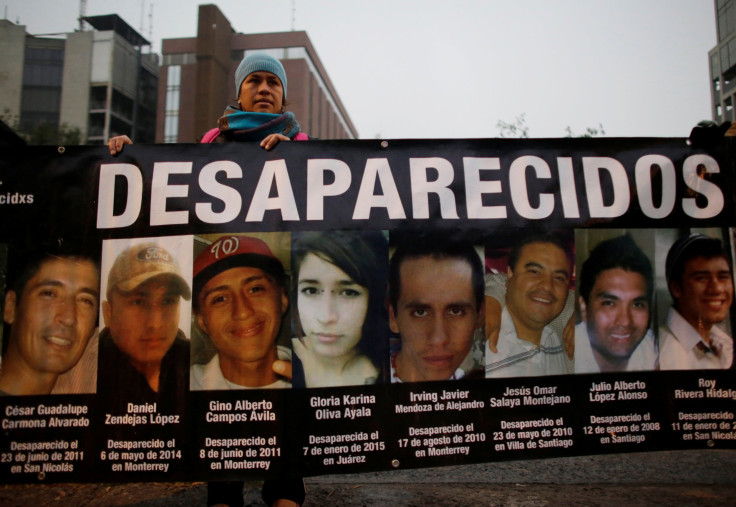
"The U.S. Department of State warns U.S. citizens about the risk of traveling to certain parts of Mexico due to the activities of criminal organizations in those areas. U.S. citizens have been the victims of violent crimes, including homicide, kidnapping, carjacking, and robbery in various Mexican states," the department writes.
As many as 25 million U.S. citizens travel to Mexico every year. The U.S.' southern neighbor remains a popular tourist destination for residents despite the fact that violence has plagued a number of its regions. Powerful drug cartels exert influence throughout the country and clashes between various organized criminal factions as well as authorities have resulted in over 164,000 deaths according to a 2014 figure. The State Department posted on Dec. 8 a comprehensive, state-by-state analysis of the country, detailing the various safety risks posed to U.S. citizens.
Ethiopia
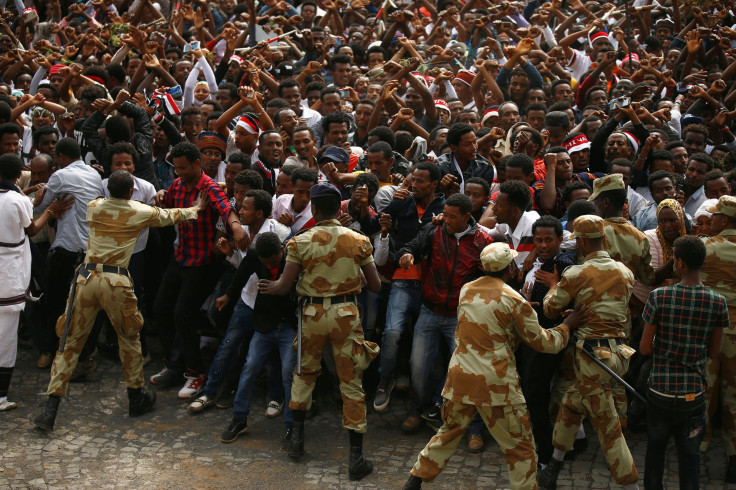
"The State Department continues to warn U.S. citizens of the risks of travel to Ethiopia due to the potential for civil unrest related to sporadic and unpredictable anti-government protests that began in November 2015," the department's report reads.
Ethiopia declared a state of emergency Oct. 8 in response to widespread protests by the Oromo people, the largest ethnic group in Ethiopia and East Africa, calling for an end to discriminatory practices and social exclusion directed toward them. The provisions include sweeping restrictions on freedom of expression and authorities have tried to physically quell the movement, resulting in violence and further unrest.
The government's constraints on communication have limited the U.S. embassy's ability to contact citizens who may find themselves in dangerous situations and on Dec. 6, the State Department asked those in the country to "monitor their security situation and have contingency plans in place in case you need to depart suddenly."
The Democratic Republic Of Congo
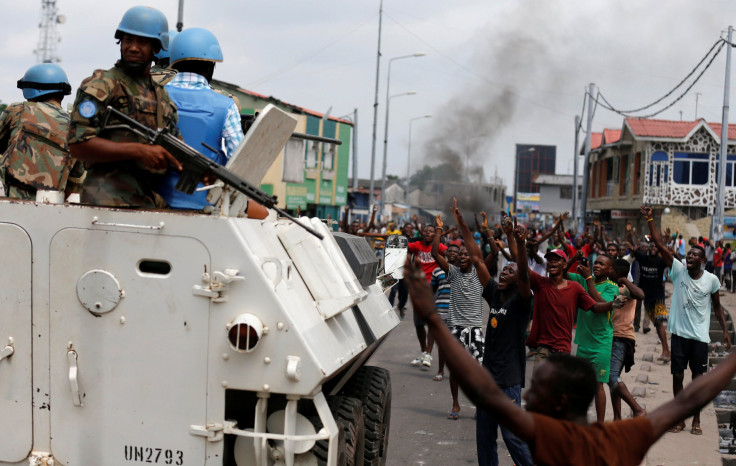
"The U.S. Embassy in Kinshasa warns U.S. citizens of the potential for large-scale demonstrations and civil unrest on/around December 19, the date on which President Kabila’s term in office was due to end before elections were delayed," the State Department wrote on Dec. 2.
Congolese President Joseph Kabila's second term expired Monday, however, the leader has refused to step down after the government delayed this year's elections to 2018, citing financial "logistical challenges." The move was met with massive demonstrations across the country by opposition supporters and even raids by armed militias. Recent unrest has sparked fears that the instability could devolve into conflict for the Sub-Saharan nation, which between 1993 and 2006 underwent the world's deadliest conflict since World War Two, claiming the lives of millions.
© Copyright IBTimes 2025. All rights reserved.























